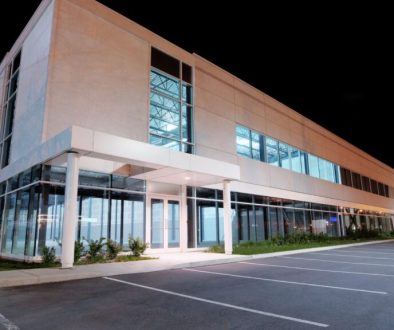Managing Lease Expirations and Renewals Strategically
Managing Lease Expirations and Renewals Strategically
In today’s competitive business environment, managing lease expirations and renewals effectively is crucial for operational success and financial stability. This blog post explores strategies to navigate lease expirations and renewals, ensuring that businesses can make informed decisions that align with their long-term goals.
Managing Lease Expirations and Renewals Strategically
In a dynamic business landscape, strategic management of lease expirations and renewals can significantly impact a company’s bottom line. Leasing commercial spaces is often a substantial financial commitment, and making the right decisions regarding lease terms can lead to improved profitability and operational efficiency. This article delves into best practices for effectively managing lease expirations and renewals, highlighting the importance of proactive planning, negotiation tactics, and market analysis.
Understanding Lease Expirations: Why Timing Matters
- Lease expirations mark critical junctures for businesses, as they dictate the terms under which a company can continue its physical operations. The timing of these expirations can affect everything from cash flow to operational stability.
- According to recent studies, approximately 30% of businesses fail to renew their leases in a timely manner, leading to unnecessary disruptions and additional costs. Understanding the lease timeline is essential for effective management.
- For instance, a business that occupies a retail space may experience a surge in foot traffic during the holiday season. If the lease expires during this critical period, the company risks losing valuable sales opportunities.
Proactive management of lease expirations allows businesses to avoid these pitfalls. By keeping track of expiration dates well in advance, companies can begin negotiations or search for new locations without the pressure of time constraints.
Negotiation Tactics for Lease Renewals
- Negotiating lease renewals involves more than just accepting the terms laid out by the landlord. Effective negotiation can lead to improved lease conditions that benefit the business.
- One of the key strategies is to conduct thorough market research. Understanding current market rates and conditions allows businesses to approach negotiations from a position of strength. For example, if the market is favoring tenants due to increased vacancy rates, businesses may leverage this information to negotiate lower rental rates or more favorable lease terms.
- Another effective tactic is to prepare a list of desired terms prior to entering negotiations. This list can include considerations such as rent reductions, extended lease terms, or tenant improvement allowances. A focused approach can help avoid miscommunication and ensure all key points are addressed during discussions.
The use of professional brokers can also facilitate negotiations, especially for businesses lacking experience in lease management. Brokers often have extensive knowledge of market conditions and can advocate effectively on behalf of their clients.
Assessing Market Conditions Before Renewal
- Before committing to a lease renewal, it’s essential to conduct a comprehensive assessment of the current market conditions. Factors such as economic trends, local competition, and property values can all influence the decision to renew.
- Companies should analyze relevant data, such as local vacancy rates and rental price trends. For instance, if the local market is seeing a downturn, it may be prudent to negotiate a longer lease with favorable terms to lock in rates before a potential increase.
- Additionally, businesses should evaluate their own operational needs. If a company has grown or changed significantly since the original lease was signed, it may be worthwhile to consider relocating to a space that better fits its current requirements.
A strategic approach to market analysis not only aids in effective lease negotiations but also helps companies align their physical presence with their overall business strategy.
Developing a Lease Management Plan
- A well-structured lease management plan serves as a roadmap for businesses navigating lease expirations and renewals. This plan should outline key dates, responsibilities, and strategies for both current leases and future negotiations.
- One effective approach is to create a lease calendar that tracks important milestones, including expiration dates, renewal options, and notification periods. By visualizing these timelines, businesses can ensure that they never miss critical deadlines.
- Moreover, companies should conduct regular reviews of their lease portfolio. This involves assessing the performance of each lease and determining whether the terms remain advantageous or if adjustments are needed.
Implementing a lease management plan can streamline the renewal process and minimize the risk of unexpected disruptions.
Leveraging Technology for Lease Management
- In the digital age, leveraging technology can greatly enhance lease management processes. Various software solutions are designed to help businesses manage their leases effectively, from tracking expiration dates to streamlining communication with landlords.
- Lease management software can automate reminders for important dates, ensuring that businesses are always informed and prepared. Furthermore, some platforms offer insights into market conditions and comparative lease data, empowering companies to make informed decisions.
- Adopting technology not only saves time but can also reduce the likelihood of costly mistakes. For example, a software system that tracks lease obligations can alert businesses to upcoming rent escalations or compliance requirements.
As technology continues to evolve, businesses should consider investing in tools that enhance their lease management capabilities.
Best Practices for Lease Expiration Management
- To navigate lease expirations successfully, businesses should adopt a proactive mindset. Here are some best practices to consider:
- Start Early: Begin the renewal process well in advance of the lease expiration date. This allows ample time for negotiations and adjustments without the pressure of imminent deadlines.
- Maintain Open Communication: Foster a positive relationship with landlords and property managers. Open lines of communication can facilitate smoother negotiations and improve collaboration.
- Evaluate Alternatives: While renewing a lease can be advantageous, it’s equally important to evaluate other options. Businesses should assess potential new locations or spaces that align better with their evolving needs.
- Document Everything: Keep comprehensive records of all correspondence and agreements related to the lease. This documentation can provide clarity during negotiations and prevent misunderstandings.
- Utilize Professional Guidance: Leverage the expertise of real estate professionals or consultants. Their insights can help businesses navigate complex lease agreements and secure favorable terms.
By following these best practices, companies can effectively manage lease expirations and renewals, minimizing risks and maximizing opportunities.
Conclusion
In conclusion, managing lease expirations and renewals strategically is vital for sustaining business operations and ensuring financial health. By understanding the importance of timing, employing effective negotiation tactics, assessing market conditions, developing a structured lease management plan, and leveraging technology, businesses can navigate the complexities of leasing with confidence.
As the landscape of commercial leasing continues to evolve, staying informed and proactive will allow businesses to make decisions that align with their long-term objectives. Start optimizing your lease management processes today to ensure a seamless transition during lease expirations and renewals.



